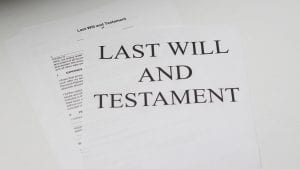Estate planning forces you to make tough decisions affecting you and your loved ones.
Everyone has a secret to-do list containing all of the things they never get around to actually doing. It’s just a guess, but you probably have such a list with “estate planning” taking the lead position.
Seniors who have not taken steps to decide on a suitable plan for dividing their estate among their siblings, for instance, have no say in what happens after death. Estate planning keeps you in control over the distribution of the assets and wealth that you worked hard to acquire and build, but a plan created in consultation with an experienced estate planning attorney accomplishes much more for you. Let’s take a look at estate planning, including what it involves and, most important, the benefits you achieve from it.
What is estate planning?
Debunking a common myth, that only rich people need an estate plan, may be the best place to begin any discussion of estate planning. It may be the word “estate,” with its images of stately mansions, which is behind the myth. Here, then, is the reality. Everyone has an estate.
The “estate” in estate planning refers to the assets you own regardless of their value. Your home, car, investments, furniture, jewelry and other personal possessions, checking and savings accounts, and other things that you own constitute your estate. Regardless of its total value, someone must take control over your estate and handle its distribution when you die.
Estate planning creates the tools, in this case the legal documents, that give you control over deciding who handles your estate after you are gone and how it gets distributed. If you die without an estate plan, a court appoints someone to take charge over your estate and distribute it according to state law without regard to your wishes.
Why is estate planning important for seniors?
Life is unpredictable, but an estate plan gives you peace of mind knowing that regardless of what life may send your way, you will be prepared for it because estate planning includes more than just having a plan for when you die. An estate plan may include a power of attorney giving someone you trust authority as your agent to handle your affairs, including:
- Paying bills.
- Managing investments and financial affairs.
- Handle insurance claims.
- Manage real estate holdings
A fall or other type of illness or injury that incapacitates you and prevents you from making decisions about your medical care need not prevent your preferences from being known and followed. Your estate plan can include documents making your healthcare and end-of-life preferences known and appoint someone you trust to speak with your doctors and make decisions for you.
Of course, a comprehensive estate plan includes documents allowing you to control management and distribution of your estate upon your death. For example, you can create a plan that protects heirs who may not be capable of properly managing money from squandering their inheritance by placing it in trust under the care and management of a competent trustee chosen by you.
What are the essential elements of an estate plan?
You only derive the benefits of an estate plan by actually scheduling a meeting with a lawyer to get one started. Sitting down with a lawyer to acknowledge your own mortality and recognize the potential of an injury or disease causing mental and physical incapacitation are not topics most people want to confront. Taking that first step is an enormous accomplishment considering that a recent Gallup poll shows that fewer than half of the adults in the United States have a will.

When you meet with a lawyer, the focus will be on providing information to give the lawyer an understanding of the composition of your family, your financial situation and concerns that you have for the future and the handling of your affairs. Based on the information you provide during the meeting the lawyer may recommend the following essential elements for your estate plan:
- Last will and testament: A will is a legal document that lets you designate someone you trust to serve as executor of your estate after your death to manage and distribute it according to your stated wishes. When you die, the will must be filed and probated in court, which verifies the document’s validity and authorizes the executor to have the legal capacity to act.
- Trusts: Unlike a will that does not take effect until after you die, a trust is created to take effect during your lifetime. A trust document names a person you choose to serve as trustee to manage and control the assets that you transfer into the trust. You control management and eventual distribution of the trust assets and income they generate through the instructions included in the trust document. Depending on your financial situation and what you wish to accomplish, a lawyer may recommend placing assets in a trust rather than letting them pass to heirs through a will. A frequently mentioned advantage of a trust is that it does not require court proceedings, such as the probate proceeding required for a will to be effective.
- Powers of attorney: A power of attorney is a legal document that lets you designate someone, called an “agent,” who has authority to manage financial and business matters on your behalf during your lifetime. You may limit the scope of the matters an agent handles for you by specifying the limitations in the document. The authority to act ends when you die or become incapacitated. Your lawyer can add language to the power of attorney allowing it to remain in effect in case of your incapacitation, which makes it a durable power of attorney.
- Healthcare durable power of attorney: An estate plan should include a legal document through which you name someone to make healthcare decisions on your behalf when you are incapable of doing so on your own. The name of the document differs throughout the country. Some states call it a medical or healthcare power of attorney while others refer to it as a healthcare proxy or medical directive.
The lawyer you consult about an estate plan can answer any questions you have and offer suggestions to tailor each element of it to satisfy your specific needs.
Estate planning provides peace of mind
Estate planning forces you to make tough decisions affecting you and your loved ones. What makes the process easier is knowing that once it is completed, you have peace of mind knowing that your wishes and preferences concerning your estate will be followed.


Join the conversation!